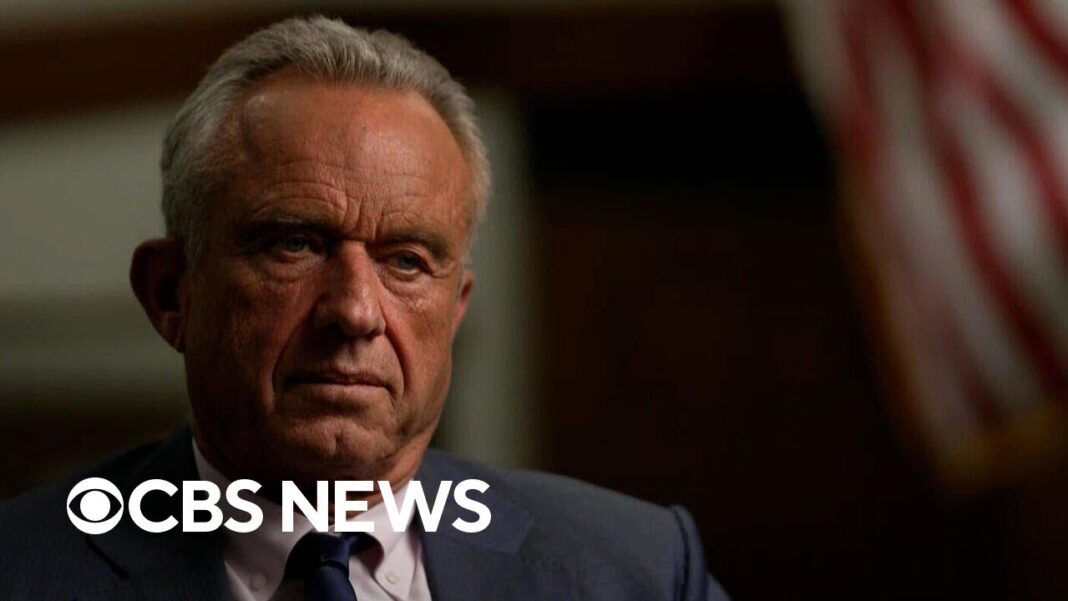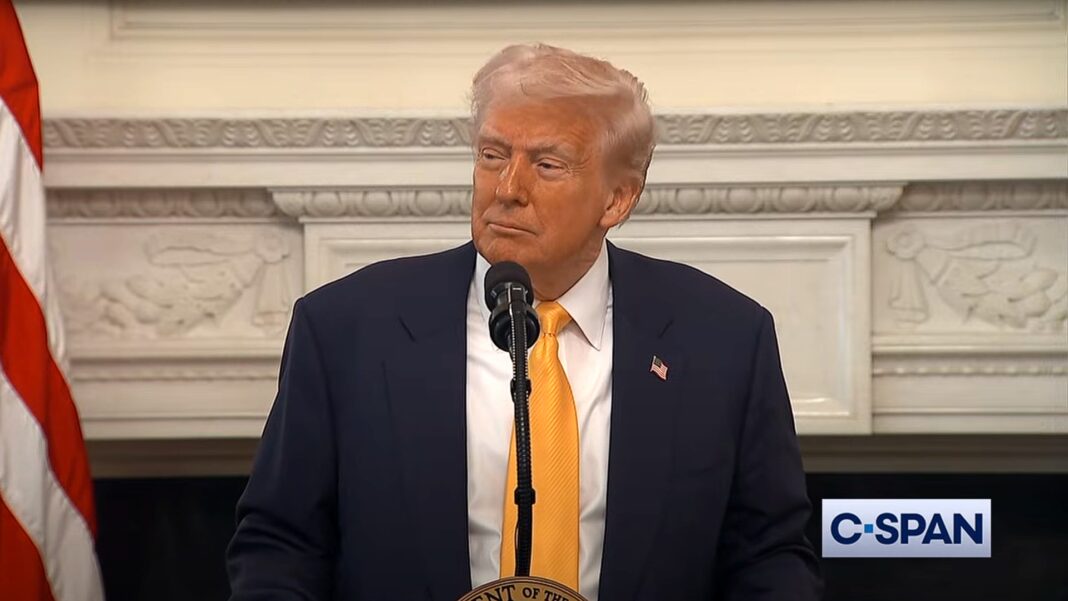The health secretary also noted the vaccine carries risks.
Health Secretary Robert F. Kennedy Jr. said in a new interview that people should get a measles vaccine.
“We encourage people to get the vaccine because it does limit the spread,” Kennedy said during the interview with CBS, released on April 9.
Kennedy said in March that vaccination protects people from measles and contributes to herd immunity and that people should consult with their doctors about potentially receiving a measles, mumps, rubella (MMR) shot. More recently, he described the vaccine as “the most effective way to prevent the spread of measles.”
An outbreak of measles that started in Texas this year has climbed to 505 cases. Other cases have been identified across the country in recent months.
Kennedy told CBS that he and President Donald Trump are aligned on a key point: that people have the choice of whether to get vaccinated and that some will choose not to.
“And we ought to know how to treat them, and doctors ought to have the best information [on] how to treat them, and we’re focusing on that,” he told CBS. He also said that many vaccines have not been properly tested and carry risks.
Adverse reactions to the MMR vaccine have included swelling and skin issues.
Many of the patients in Texas are either vaccinated or have unknown vaccination status, according to officials there. Two Texas girls who died following measles infections were both unvaccinated.
Kennedy said Americans who have died from measles are “people who are already sick.” One of the girls had undergone tonsillectomy and then suffered from lingering mononucleosis, he said, according to her parents and health records he reviewed.
While the outbreak in the United States has expanded and led to deaths, the United States has controlled the outbreak better than Europe, where the number of cases and fatalities is much higher, the health secretary said.
“Why are we still having measles? We’re always going to have measles, as the vaccine wanes very quickly,” he said.
Various studies have identified a gradual, slow waning of the protection from the MMR vaccine, including a 2023 paper from France and a 2023 study from Slovakia.
The U.S. Centers for Disease Control and Prevention says that one dose of the MMR vaccine is 94 percent effective against measles, and the second dose boosts the effectiveness to 97 percent. The estimates are drawn from a 2013 paper analyzing studies that were performed more than a decade ago, a CDC spokesperson told The Epoch Times in an email.
The immunity provided by the vaccine is “long-term and probably lifelong in most persons,” the agency states on its website.
The CDC advises that people who are exposed to measles get the MMR vaccine within 72 hours of exposure. Another option for post-exposure prophylaxis is immunoglobulin.







